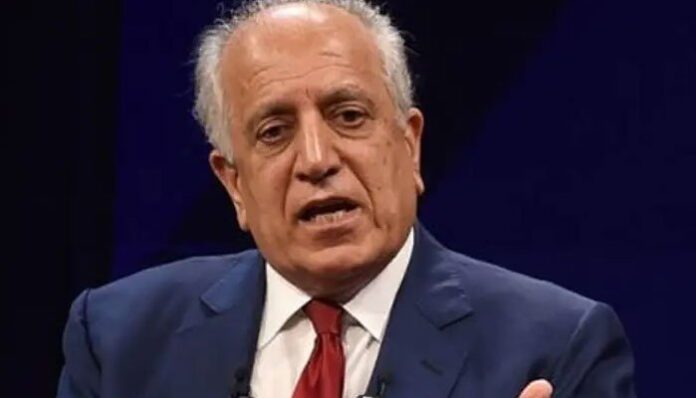
| Translate This News In |
|---|
According to former US Special Representative for Afghanistan Reconciliation Zalmay Khalilzad, the US was losing the battle against the Taliban, so it chose peace talks as an option.
Khalilzad, who stepped down as special envoy for Afghanistan earlier this month, claimed the US military sought to enhance its position on the battlefield several times but failed.
Khalilzad gave his perspective on what went wrong during the last days of the Afghan evacuation in an interview with CBS News’ “Face the Nation” show.
“The negotiation was based on the assumption that we weren’t going to win the war, thus time wasn’t on our side, and it was preferable to strike a deal sooner rather than later.” Khalilzad blamed the breakup of Afghanistan’s security sector on then-President Ashraf Ghani, claiming that his escape caused anarchy in Kabul.
He claimed the Taliban were in talks with him about building a power-sharing government that would include certain Ghani administration officials. He claimed that none of this happened since Ghani did not stay.
Ghani refused to relinquish control, according to Khalilzad, who also dismissed Ghani’s claims that he fled Kabul to avert bloodshed.
“So, why did President Ghani act the way he did?” says the author. Imagine if he had offered that a year, six months ago, for the sake of peace — that someone mutually acceptable could have led the government. He did not, however,” he stated.
According to Khalilzad, the US has mostly succeeded in crushing Al Qaeda, which is why it went to Afghanistan in the first place, but has failed to construct a democratic Afghanistan.
He claimed that the United States’ two-decade presence in Afghanistan had changed the country, and that the Taliban will have a difficult time putting Afghans back in the box as they did in the 1990s.
Instead of the August 15 outcome, Khalilzad stated that the US desired a power-sharing administration with the Taliban.
He said the Taliban had kept their word by breaking relations with terrorist groups and refusing to allow Afghanistan to be used as a staging ground for attacks against the United States and its allies. He stated, “They are not enabling Al-Qaeda to strategize and plan activities against the United States.”
The relationship between Afghanistan and the United States will not normalise, according to Khalilzad, if the Taliban do not form an inclusive government and do not respect Afghans’ rights.
If the Afghan economy falls, Khalilzad also warned of a probable civil conflict.
There will be no shift toward normalcy unless the Taliban “move toward broader inclusion, recognising the rights of the Afghan people, and then upholding their pledge to us on terrorism,” he said. A release of monies should not be made. As a result, their economy could implode, potentially triggering a new civil war.”
Afghanistan has numerous challenges, according to Khalilzad, and the US should assist the country in reaching an agreement on a formula that is acceptable to both urban and rural Afghans, as well as secular and religious Afghans, in order to address the country’s troubles.

















